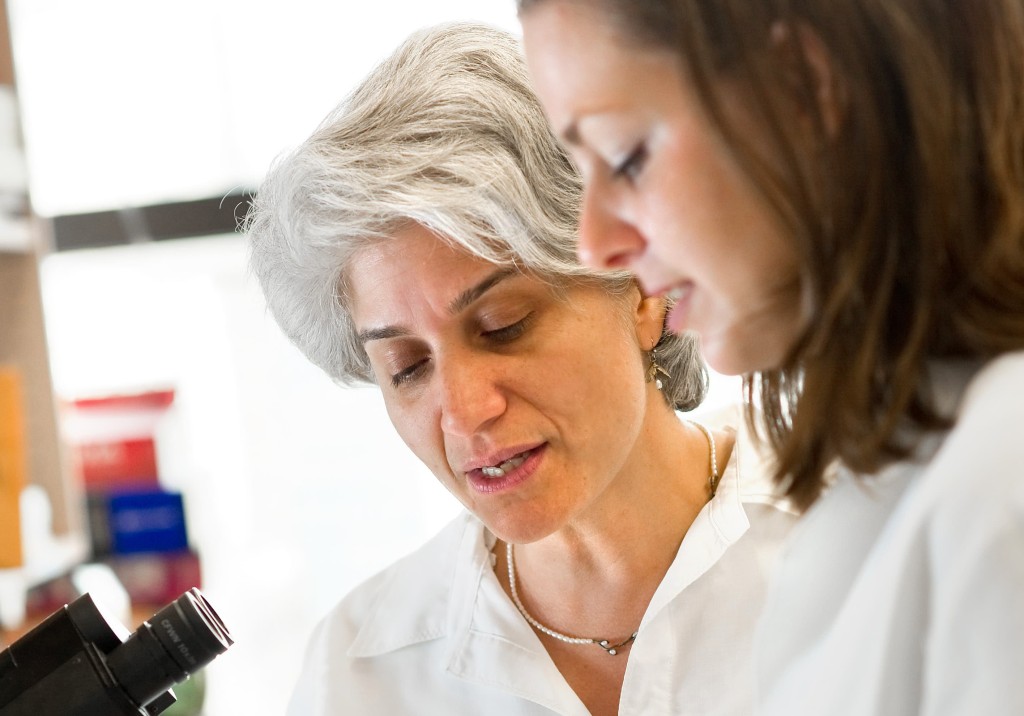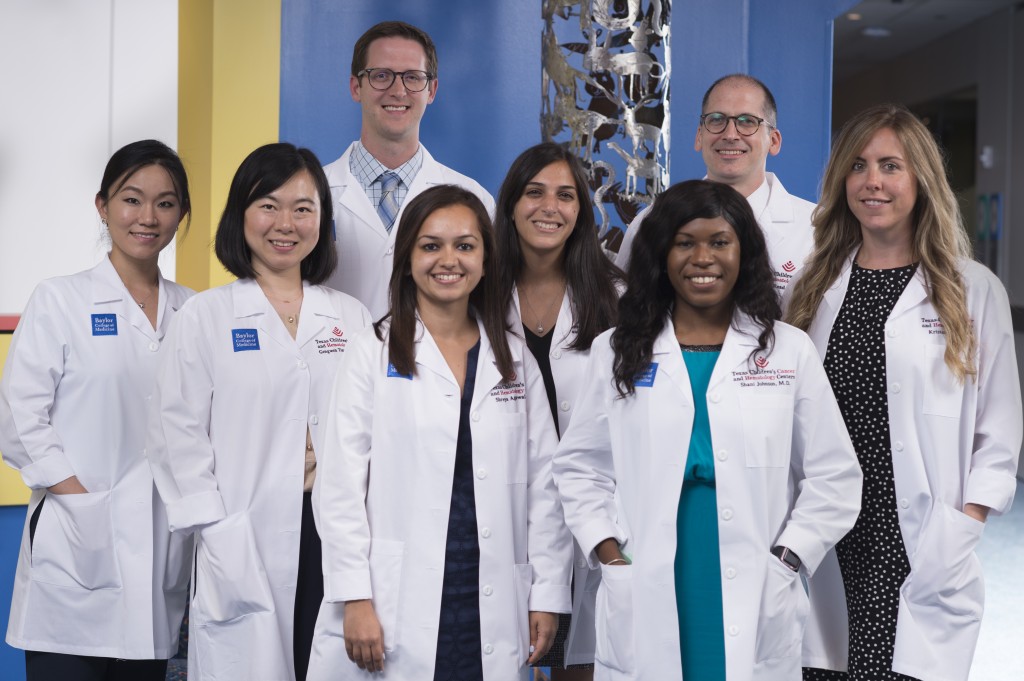
Pediatric Hematology-Oncology Fellowship Second and Third Years
Research Training

The Pediatric Hematology-Oncology Training Program emphasizes the importance of achieving significant research expertise and productivity during fellowship training. A strong foundation in research is critically important to the development of a successful academic career.
The fellow’s formal education in research includes an Orientation to Research curriculum and courses at the Baylor College of Medicine in the Fundamentals of Clinical Investigation and Responsible Conduct of Research at the start of the second year of fellowship. These courses introduce the fellow to the concepts of research design, data analysis, ethics of research, as well as practical guidance to successfully transitioning to the research environment.
Beginning with the initial orientation month and continuing throughout the fellowship, trainees learn about clinical research through their exposure and involvement in numerous ongoing clinical trials and study protocols. Our physicians develop trials and participate in all major pediatric cancer and blood disorder cooperative clinical trial groups, like the Children’s Oncology Group (COG) and the Pediatric Brain Tumor Consortium (PBTC).
During weekly teaching conferences, fellows are exposed to the presentation and interpretation of research data by clinical researchers and laboratory investigators. At the weekly Research Seminars, faculty and visiting speakers present and discuss their research. Visiting speakers often meet with the fellows in lunchtime discussion sessions. Beginning in late fall of their first year, trainees attend a series of special presentations given by laboratory and clinical research-oriented investigators. These sessions are designed to familiarize the fellows with specific research conducted throughout the Program’s many laboratories. Physicians and scientists in the 47 laboratories of the Cancer and Hematology Center perform research in molecular oncology, precision oncology, immunotherapy, cancer genetics, cancer genomics, cell and gene therapy, pharmacology and experimental therapeutics, neuro-oncology, tumor immunology, transplantation and stem cell biology, and hematology.
LEARN MORE ABOUT OUR RESEARCH AREAS IN HEMATOLOGY/ONCOLOGY
During the subsequent two to three months, fellows make individual appointments with selected faculty members of their choice to discuss future research opportunities. Fellows may also explore research opportunities within other research groups and laboratories throughout BCM and the Texas Medical Center. By the end of May of their first year, with guidance from their clinical mentor, Section Chief, and the fellowship leadership, each fellow selects a research mentor and laboratory or clinical research project.
Subsequently, during the second and third years of fellowship, the fellows have protected time with limited clinical responsibilities in order to focus on their independent research project under the supervision of their research mentor. Fellows commit approximately 80% of their time to their research projects. The goal of training during this period is for the fellow to develop the research skills and training necessary to ultimately become a successful independent laboratory or clinical investigator. Fellows pursuing an academic research pathway are encouraged to continue their research during their fourth year.
Excellent mentorship is a hallmark of our fellowship training program. Fellows receive individualized in-depth training in their selected clinical or basic research interest under the mentorship of a committed faculty research mentor. These research mentors are dedicated to ensuring that each fellow receives the guidance and direction necessary to develop a successful career in academic Pediatric Hematology-Oncology. Fellows are responsible for carrying out an independent research project. They receive support from their Scholarship Oversight Committee, a faculty advisory committee which is personalized for each fellow to include the fellow’s research mentor and additional faculty members with expertise in the fellow’s area of research and convenes formally with the fellow to ensure a productive and successful research experience.
Continuing Clinical Training in Second and Third Years

In order to maintain and enhance fellows’ clinical skills during this extended research period, all fellows’ continue to have clinical responsibilities which account for approximately 20% of their time. Fellows spend a half-day per week in their continuity clinic, in addition to some night and weekend coverage responsibilities. They also spend one month on the inpatient Bone Marrow Transplantation service during their second year of fellowship. Overall, throughout the 36-month fellowship program, the trainees spend approximately 50% of their time in various clinical settings and the remaining 50% engaged in research activities.
In addition, fellows continue to participate in the ongoing schedule of educational conferences and research seminars, all of which serve to enhance their educational experience.